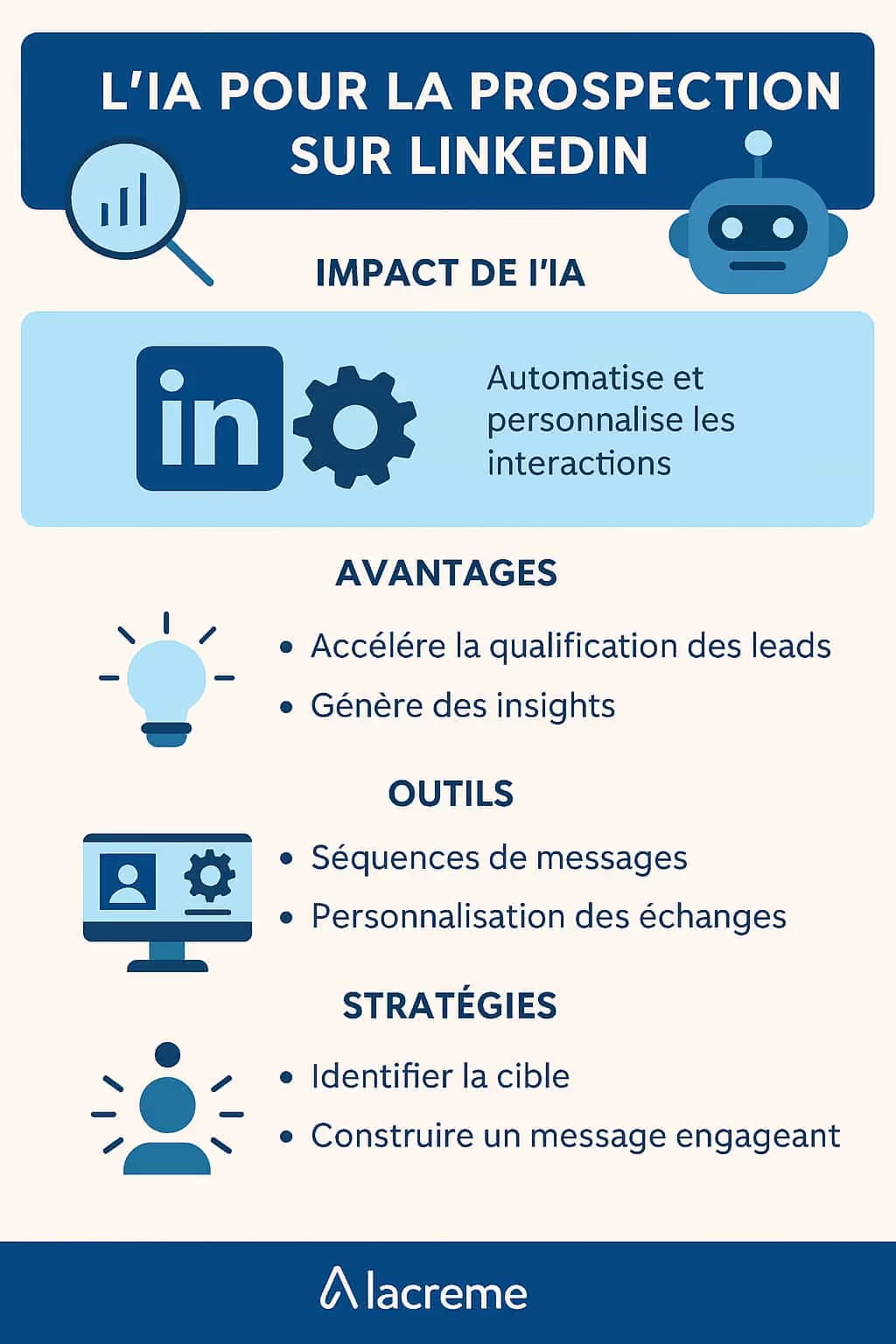1. What Is Artificial Intelligence and Why Study It?
What is AI?
THEartificial intelligence (AI) represents a branch of technology aimed at creating systems that can perform tasks that would normally require human intelligence. This includes areas like machine learning, speech recognition, decision making, and more. AI is transforming various sectors, from health To the Finances, making processes more efficient, fast, and intelligent.
Why study it?
AI is not only a technological revolution, it is also an inexhaustible source of professional opportunities. AI skills are increasingly in demand in many sectors. Studying AI means preparing for leading roles in this new technological era, whether as a data scientist, AI engineer, or data analyst. Understanding AI opens doors to innovative and rewarding careers.
2. Self-Assessment: Understanding Your AI Career Goals
Importance of Clarity of Objectives
Before diving into a AI training, it's crucial to understand your own goals and motivations. Ask yourself: why do you want to study AI? Is it for a passion for technology, a career change, or to increase your skills in your current field? Having clear goals will help you choose the training path that best fits your needs.
Aligning Interests and Opportunities
AI is a vast field. Some may be interested in developing conversational AI, while others may be drawn to analyzing data for business insights. Understanding where your interests intersect with market opportunities is critical. For example, if you have a strong interest in mathematics, a career in machine learning could be ideal.
3. Types of AI Courses: Face-to-face, Online, MOOCs
Advantages and Disadvantages of Each Type
Each training format has its advantages and disadvantages. Face-to-face courses offer direct interaction with trainers and peers, promoting an immersive learning experience. Online courses and MOOCs offer flexibility and access to a wider range of global resources and experts. However, they require greater personal discipline in order to succeed.
Choose according to your learning style
Your choice will depend on your learning style and personal circumstances. If you prefer a more supervised structure and in-person interactions, face-to-face training will be more appropriate. On the other hand, if you need flexibility due to professional or personal commitments, online courses or MOOCs could be a better option. Also, consider practicality, such as the location of in-person courses and the availability of time for online courses.
4. Understanding the Prerequisites for AI Training
Basic Skills and Knowledge Needed
To engage in artificial intelligence training, certain prerequisites are essential. A basic understanding of maths, especially in statistics and linear algebra, is crucial. In addition, programming skills, typically in Python, are often required, as Python is widely used in the field of AI for algorithm development.
Importance of Programming and Mathematics
Math is the language of AI. They are used to understand and develop algorithms capable of performing machine learning and deep learning tasks. Programming, especially in Python, is essential for putting these mathematical concepts into practice and creating functional AI models. A solid foundation in these two fields is therefore essential for anyone who wants to seriously venture into the study of AI.
5. Focus on AI Certificates and Degrees
Overview of Key Certifications and Their Value
AI certifications can play an important role in validating your skills and knowledge. Industry-recognized certifications, such as those offered by Google, IBM, or Microsoft, can add great value to your resume. They demonstrate a specific understanding and expertise in the field of AI.
Bachelor, Master and Other Specialized Degrees in AI
In addition to certifications, academic degrees such as the Bachelor and Master in Artificial Intelligence offer in-depth and structured training. These programs often cover a wide range of topics in the field of AI and include practical experiences. A specialized degree can open doors to research careers or top-level positions in industry.
6. Choosing between Data Science, Machine Learning, and Deep Learning
Understanding the Differences and Similarities
While these terms are often used interchangeably, there are distinct differences between them. Data science encompasses data analysis, statistics, and data visualization to extract meaningful information. Machine learning is a sub-branch of AI that focuses on creating systems that can learn and improve from data, without being explicitly programmed. Deep learning, a subcategory of machine learning, uses deep neural networks to process large amounts of complex data.
How to Choose the Specialization Most Adapted to Your Goals
Your choice of specialization will depend on your professional interests and goals. If you are passionate about analyzing and visualizing data to help businesses make informed decisions, data science is ideal. If you're interested in developing AI applications that can learn and evolve, machine learning is the way to go. For those who are fascinated by advanced AI and complex data processing, deep learning is the right specialty.
7. Entrepreneurship in AI: Creating or Joining a Startup
Exploring Entrepreneurial Potential in AI
Artificial intelligence offers fertile ground for entrepreneurship. With AI transforming almost every sector, from healthcare to finance, the opportunities to create innovative solutions and disruptive businesses are immense. As an AI entrepreneur, you can develop new products, services, or even platforms based on AI, meeting the specific needs of a market or industry.
Tips for Starting an AI-Based Business
To start an AI business, a solid understanding of AI and its application in a business context is essential. Identify a specific problem that AI can solve, and focus on creating a workable solution. Build a skilled team, explore funding options, and engage with the AI community for insights and support. Maintaining a clear vision and an adaptive strategy is crucial in the rapidly changing AI environment.
8. Avoiding Pitfalls: Selecting Quality Courses
How to Identify Trusted Courses and Avoid Scams
With the increase in the popularity of AI, numerous courses and trainings have emerged, some of which are of dubious quality. To avoid pitfalls, look for training offered by recognized institutions or platforms. Check instructor qualifications, course content, and reviews from former students. Beware of unrealistic promises and focus on programs that offer practical and applicable skills.
The Importance of Reviews and Testimonies in Choosing a Course
Reviews and testimonies can provide valuable information on the quality of training. They allow you to understand the alumni experience, the effectiveness of the curriculum, and the real results in terms of employment or skills acquired. Take the time to read these feedback to assess whether a course will meet your expectations and needs.
9. Learning by Doing: The Importance of Practical Projects
The Impact of Concrete Projects on Learning
Hands-on learning is crucial in the study of AI. Les real projects allow you to apply the theories and skills learned in the classroom. By working on concrete projects, you confront real challenges in the field of AI, develop critical thinking, and learn to solve complex problems. These experiences reinforce your understanding and prepare you effectively for the job market.
How Real Projects Prepare for the Job Market
Practical projects offer valuable experience that is often sought after by employers. They demonstrate your ability to apply your knowledge in real situations, to work in a team, and to lead a project to completion. These projects can also be used as a portfolio to show your skills and experience to potential employers, increasing your chances of professional success in the field of AI.
10. Networking and Post-Training Professional Opportunities
The Importance of Networking in the Field of AI
The networking plays a crucial role in the field of artificial intelligence. Participating in AI-related conferences, workshops, and events allows you to connect with industry professionals, gain valuable knowledge, and stay up to date on the latest trends and technologies. These relationships can lead to professional opportunities, collaborations, or even innovative ideas for new projects.
How to Use LinkedIn and Other Platforms to Advance Your Career
LinkedIn and other professional platforms are powerful tools for expanding your AI network. Create an engaging profile that highlights your AI skills, projects, and training. Join AI-related groups, participate actively in discussions, and connect with professionals in the field. Post relevant content regularly to demonstrate your expertise and passion for AI.
Conclusion and Key Takeaways
In conclusion, training in artificial intelligence is an exciting and promising adventure that requires careful planning and strategic execution. Here are the key takeaways from your journey to a successful AI career:
- Choice of training: Align your personal and professional goals with the type of AI training you choose, whether it's face-to-face, online, or MOOCs.
- Importance of the Prerequisites: Make sure you have or acquire the basic math and programming skills needed to succeed in AI.
- Certificates and Degrees: Enhance your background with recognized certifications and consider specialized degrees for in-depth knowledge.
- Specialization: Choose your specialization - whether in data science, machine learning, or deep learning - based on your interests and career goals.
- Entrepreneurship in AI: Explore entrepreneurial opportunities in AI to innovate and positively impact society.
- Selection of Quality Trainings: Look for trustworthy training and avoid the pitfalls of offers that are too good to be true.
- Practical learning: Engage in practical projects to strengthen your skills and prepare for entry into the workforce.
- Networking: Use platforms like LinkedIn to expand your professional network and discover opportunities in the field of AI.






